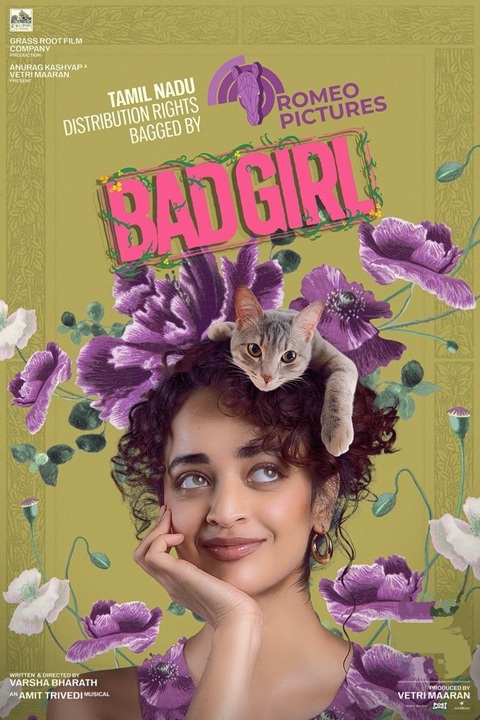
By Sam Trailerman
In Bad Girl, debut director Varsha Bharath doesn’t just tell a story — she detonates one.
This 2025 Tamil-language coming-of-age drama is a raw, radiant, and rebellious portrait of a young woman clawing her way out of inherited silence.
Premiering at the International Film Festival Rotterdam and later sweeping the Audience Award at the Vancouver International Film Festival, Bad Girl is not just a film — it’s a reckoning.
Produced by cinematic heavyweights Vetrimaaran and Anurag Kashyap under the Grass Root Film Company banner, the film stars Anjali Sivaraman in a performance that is nothing short of electric.
As Ramya, a teenager navigating the tightrope between tradition and selfhood, Sivaraman delivers a portrayal so intimate, it feels like a confession.
From the very first frame, Bad Girl embraces visual storytelling with a kind of reckless grace. Every shot, every cut, every note of the background score is calibrated to echo Ramya’s inner chaos.
The camera lingers on her face — not to beautify, but to bear witness. A pimple on her chin becomes a metaphor for the rawness of adolescence, the kind of detail that makes you wince and smile at once. Or wanting to pierce it!
Ramya’s world is one of contradictions: strict parents who enforce tradition like drill sergeants, and a mind that dances to the beat of Yahoo Messenger pings and impulsive crushes.
Her journey — from secret teenage high school flings with Nalan (Hridhu Haroon) to a turbulent college romance with the charming but unreliable Arjun (Sashank Bommireddipalli) — is messy, magnetic, and heartbreakingly real.
But Bad Girl isn’t just about love. It’s about longing. For freedom. For space. For the right to be flawed. Ramya’s rebellion isn’t loud — it’s lived.
In the way she stares back at the camera. In the way she walks out of a room. In the way she dares to dream beyond the script written for her.
Varsha Bharath’s direction is fearless. She doesn’t preach. She doesn’t pander. Instead, she crafts a narrative that is deeply personal, unapologetically feminine, and refreshingly free of tokenism.
This is not a film that waves a feminist flag—it simply lives the truth of a young woman fighting to breathe.
And yet, controversy found its way in. After the teaser dropped on January 26, 2025, a director on X (formerly Twitter) accused the film of misrepresenting a specific community.
What followed was a familiar storm of online outrage, personal attacks, and calls for censorship. Despite receiving a U/A certificate — with 20% of the film trimmed and profanities muted — the Madurai bench of the Madras High Court ordered the removal of the teaser from social media, citing concerns about its portrayal of children.
But Varsha stood her ground. “I can only make films that are relatable, familiar, and personal to me,” she said.
And that’s exactly what Bad Girl is — a film that doesn’t try to speak for everyone, but speaks so honestly for one, that it resonates with many.
At just 112 minutes, Bad Girl sprints through Ramya’s coming-of-age with untrammelled energy. It’s a whirlwind of emotion, humour, heartbreak, and hope.
A generation’s angst distilled into one girl’s gaze. A story that doesn’t seek to resolve, but to reveal.
This isn’t a film about overthrowing systems. It’s about surviving them. It’s about the quiet courage of choosing your own path when the world hands you a script. It’s about the beauty of being messy, moody, and magnificently human.
Bad Girl is a gem — unpolished, unfiltered, unforgettable. It doesn’t ask for your approval. It demands your attention.
And it deserves every second of it.